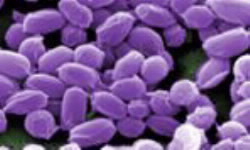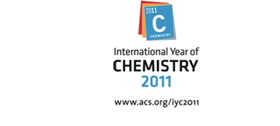EMBARGOED FOR RELEASE
ACS News Service Weekly PressPac: August 25, 2010
Toward safer foods for human consumption with anthrax protection
Embargoed for release: Thursday, August 26, 9:45 a.m., Eastern Time
Note to reporters: The full texts of these press releases, abstracts of presentations and non-technical summaries provided by scientists are available at Eurekalert at www.eurekalert.org/acsmeet.php and also at http://web.1.c2.audiovideoweb.com/1c2web3536/Boston2010/BostonReleases_Aug25.htm.
An antibacterial enzyme found in human tears and other body fluids could be applied to certain foods for protection against intentional contamination with anthrax, scientists reported here today at the 240th National Meeting of the American Chemical Society (ACS). “Data from this study could be used in developing the safer foods for human consumption,” said Saeed A. Khan, Ph.D. The data from our study shows that lysozyme application has the potential to eliminate anthrax producing bacteria in processed foods.”
Khan and colleagues knew from almost a century of lysozyme research that the enzyme kills certain bacteria. It does so by destroying bacteria cell walls, the rigid outer shell that provides a protective coating. Until the new study that was published by Dr. Khan and his colleagues, however, it was not known if lysozyme could also be effective against Bacillus anthracis, the microbe that causes anthrax. Khan and colleagues, who are with the National Center for Toxicological Research in Jefferson, Ark., used a surrogate bacterial strain that is considered as a stand-in for anthrax in their research because it behaves in more or less similar fashion as the actual anthrax strain, except that it does not cause the disease. They studied the spore’s survival in hens’ egg white, and found that the lysozyme in egg white was very effective in killing anthrax spores. Lysozyme also showed some activity in killing spores added to ground beef and milk.
“Based on our results, it looks like that lysozyme could be used to either slow down or prevent the growth of an avirulent form of the bacterium Bacillus anthracis that causes anthrax,” Khan said. “More research is needed on other types of foods, including ground beef, milk, fruit juices, and vegetables.” The study was carried out in collaboration with the U. S. Dept. of Agriculture (USDA) and funded by the U. S. Department of Homeland Security (DHS). The views presented by Dr. Khan are his own and do not necessarily represent those of the USDA, DHS, or FDA.
![]()

Contact
Science Inquiries: Michael Woods, Editor, 202-872-6293
General Inquiries: Michael Bernstein, 202-872-6042


